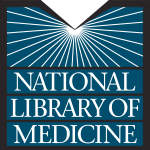- Industria: Library & information science
- Number of terms: 152252
- Number of blossaries: 0
- Company Profile:
The National Library of Medicine (NLM), on the campus of the National Institutes of Health in Bethesda, Maryland, is the world's largest medical library. The Library collects materials and provides information and research services in all areas of biomedicine and health care.
1) A tripeptide with many roles in cells. It conjugates to drugs to make them more soluble for excretion, is a cofactor for some enzymes, is involved in protein disulfide bond rearrangement and reduces peroxides.
2) Tripeptide composed of gamma-glutamate, cysteine, and glycine; an important endogenous reducing agent involved in oxidative respiration and free radical scavenging.
3) The peptide gamma-glutamylcysteinylglycine.
4) A tripeptide present in most cells comprised of three amino acids (cysteine, glutamic acid, and glycine) acting as an antioxidant, enhancing free radical scavenging, a detoxifying agent, binding to and transforming chemicals into excretable forms, a co-factor for some enzymes, and to boost the immune system.
Industry:Medical
Congenital downward displacement of the tricuspid valve with the septal and posterior leaflets being attached to the wall of the right ventricle.
Industry:Medical
A unique abbreviation of a gene name consisting of italicized uppercase Latin letters and Arabic numbers formally assigned by the by HUGO Gene Nomenclature Committee after a gene has been identified (Note: a putative gene may be referred to by its locus name prior to its identification. )
Industry:Medical
1) An insertion or deletion involving a number of base pairs that is not a multiple of three and consequently disrupts the triplet reading frame, usually leading to the creation of a premature termination (stop) codon and resulting in a truncated protein product
2) A frameshift mutation is a type of mutation involving the insertion or deletion of a nucleotide in which the number of deleted base pairs is not divisible by three. "Divisible by three" is important because the cell reads a gene in groups of three bases. Each group of three bases corresponds to one of 20 different amino acids used to build a protein. If a mutation disrupts this reading frame, then the entire DNA sequence following the mutation will be read incorrectly.
Industry:Medical
1) The capacity to conceive or to induce conception. It may refer to either the male or female.
2) The quality or state of being capable of breeding or reproducing. Used for human and animal populations.
3) The ability to produce children.
Industry:Medical
The transfer of DNA sequences between two homologous genes, most often by unequal crossing over during meiosis; can be a mechanism for mutation if the transfer of material disrupts the coding sequence of the gene or if the transferred material itself contains one or more mutations.
Industry:Medical
The association between the presence of a certain mutation or mutations (genotype) and the resulting physical trait, abnormality, or pattern of abnormalities (phenotype). With respect to genetic testing, the frequency with which a certain phenotype is observed in the presence of a specific genotype determines the positive predictive value of the test.
Industry:Medical
A malignant tumor of the central nervous system and usually of a cerebral hemisphere -- called also spongioblastoma.
Industry:Medical
1) Chronic, irreversible renal failure.
2) An irreversible and usually progressive reduction in renal function in which both kidneys have been damaged by a variety of diseases to the extent that they are unable to adequately remove the metabolic products from the blood and regulate the body's electrolyte composition and acid-base balance.
3) The final stage of kidney failure (as that resulting from diabetes, chronic hypertension, or glomerulonephritis) that is marked by the complete or nearly complete irreversible loss of renal function -- called also end-stage kidney disease, end-stage kidney failure, end-stage renal failure.
Industry:Medical
